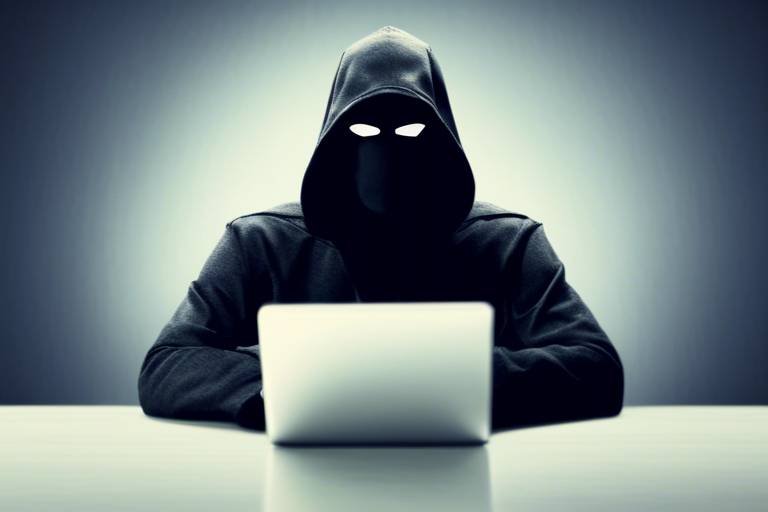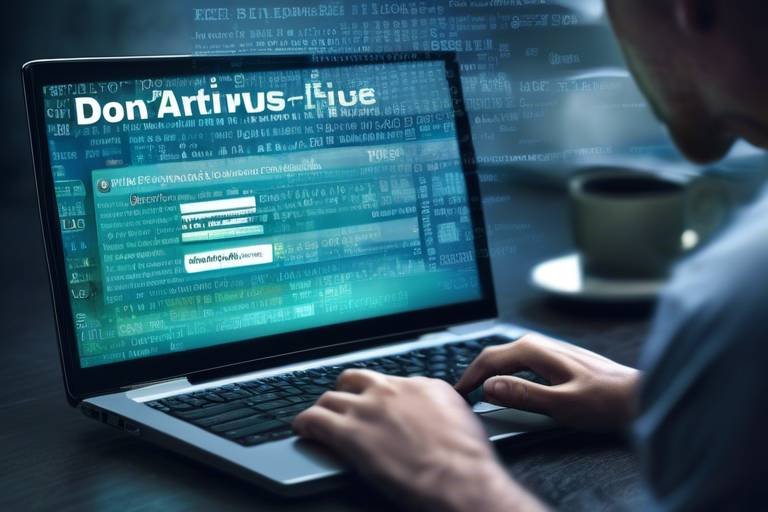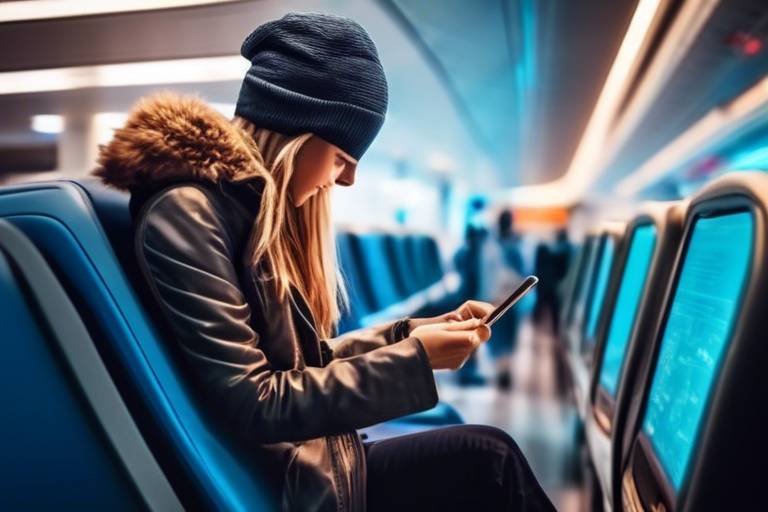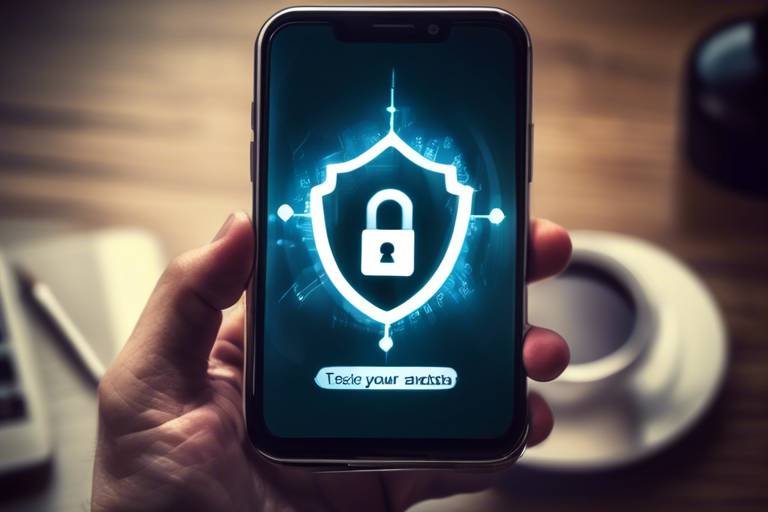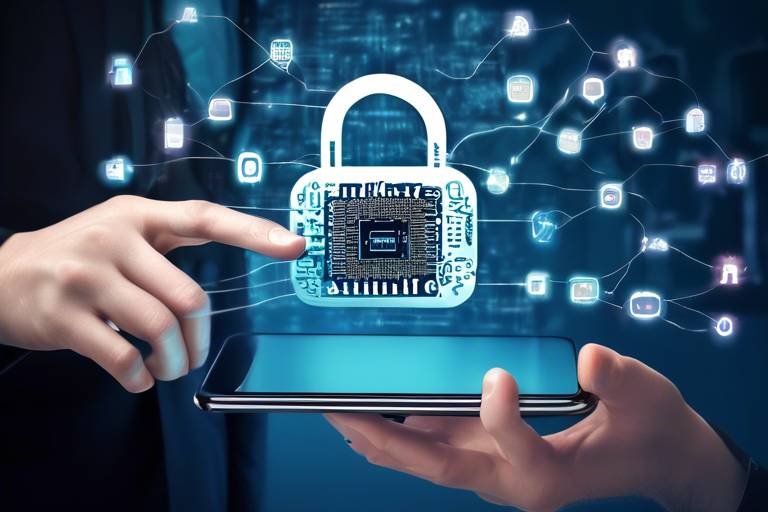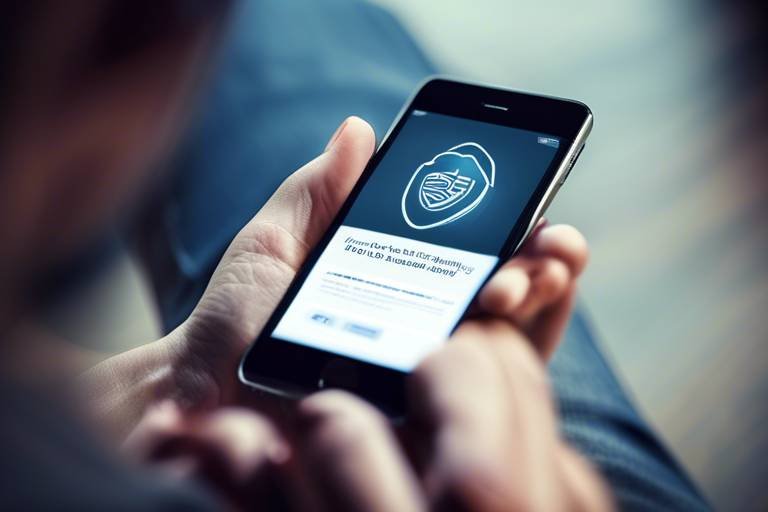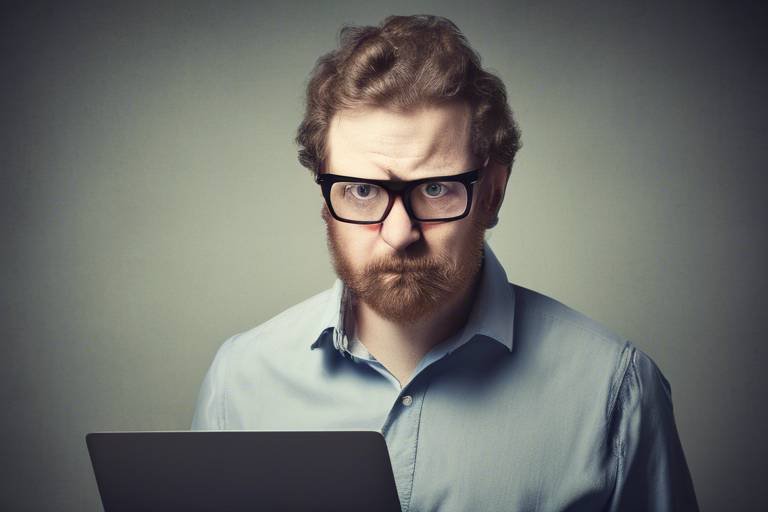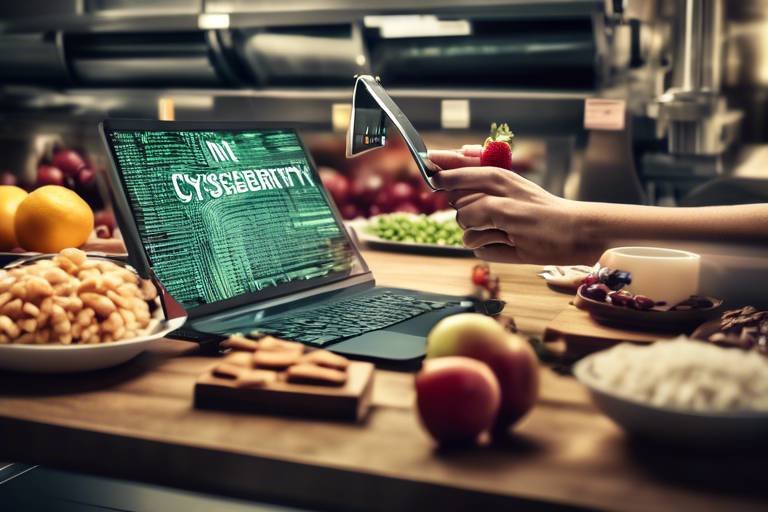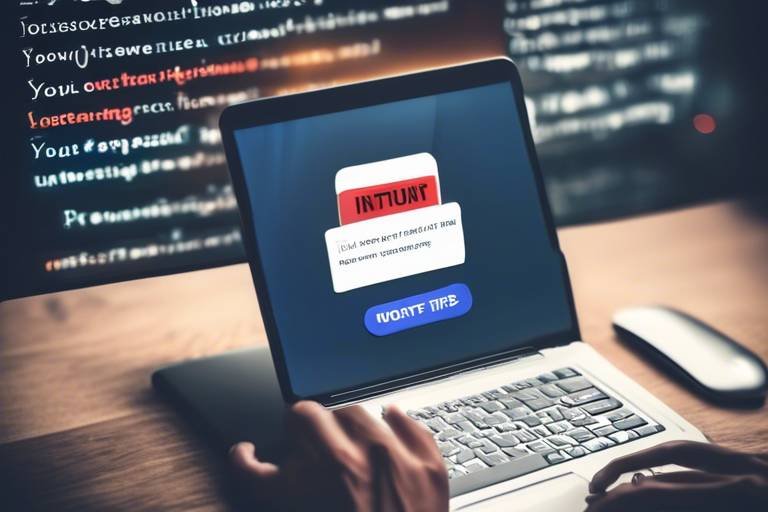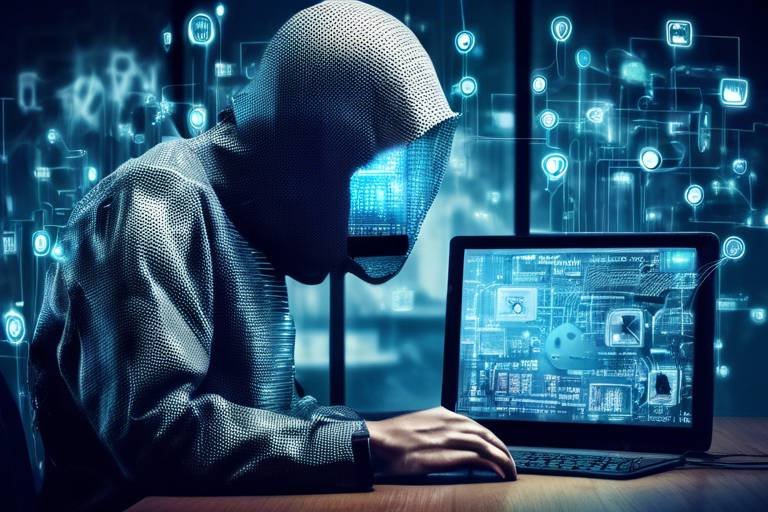Can VPNs Guarantee 100% Anonymity?
In today's digital age, the quest for online anonymity has become a hot topic. With increasing concerns over privacy violations, data breaches, and surveillance, many individuals are turning to Virtual Private Networks (VPNs) as a solution. But can these tools truly provide 100% anonymity? Let’s dive into this question and explore the landscape of online privacy.
First off, it's essential to understand what a VPN does. A VPN creates a secure tunnel between your device and the internet, encrypting your data to keep it safe from prying eyes. Think of it as a secret passage that shields your online activities from hackers, government surveillance, and even your Internet Service Provider (ISP). However, while VPNs can significantly enhance your privacy, they are not a silver bullet for complete anonymity.
One of the most common misconceptions is that simply using a VPN will make you completely invisible online. While VPNs do mask your IP address and encrypt your data, they do not eliminate all traces of your online activities. For instance, websites you visit can still track you through cookies and other tracking technologies unless you take additional precautions. Moreover, some VPN providers may log your activities, which poses a risk if they are compelled to share data with authorities.
Furthermore, not all VPNs are created equal. The level of anonymity you achieve can vary significantly based on the provider you choose. Some VPNs prioritize user privacy and have strict no-logs policies, while others may keep records of your activities. It's crucial to do your research and select a reputable VPN that aligns with your privacy needs.
In conclusion, while VPNs are powerful tools for enhancing your online privacy, they do not guarantee 100% anonymity. To achieve a higher level of privacy, users should consider combining VPN usage with other privacy measures, such as using privacy-focused browsers, disabling cookies, and employing additional encryption tools. Remember, in the vast ocean of the internet, a VPN is just one lifeboat among many. Stay informed, stay secure!
- Can I trust free VPN services? - While some free VPNs may offer basic protection, they often come with limitations, such as data caps, slower speeds, and potential data logging. Always read the privacy policy before using any free service.
- Will a VPN slow down my internet speed? - Yes, using a VPN can affect your internet speed due to the encryption process and the distance to the VPN server. However, premium VPNs often optimize their services to minimize speed loss.
- Are there any legal issues with using a VPN? - The legality of using a VPN varies by country. In most places, it’s perfectly legal; however, some countries have restrictions or outright bans on VPN usage. Always check your local laws.
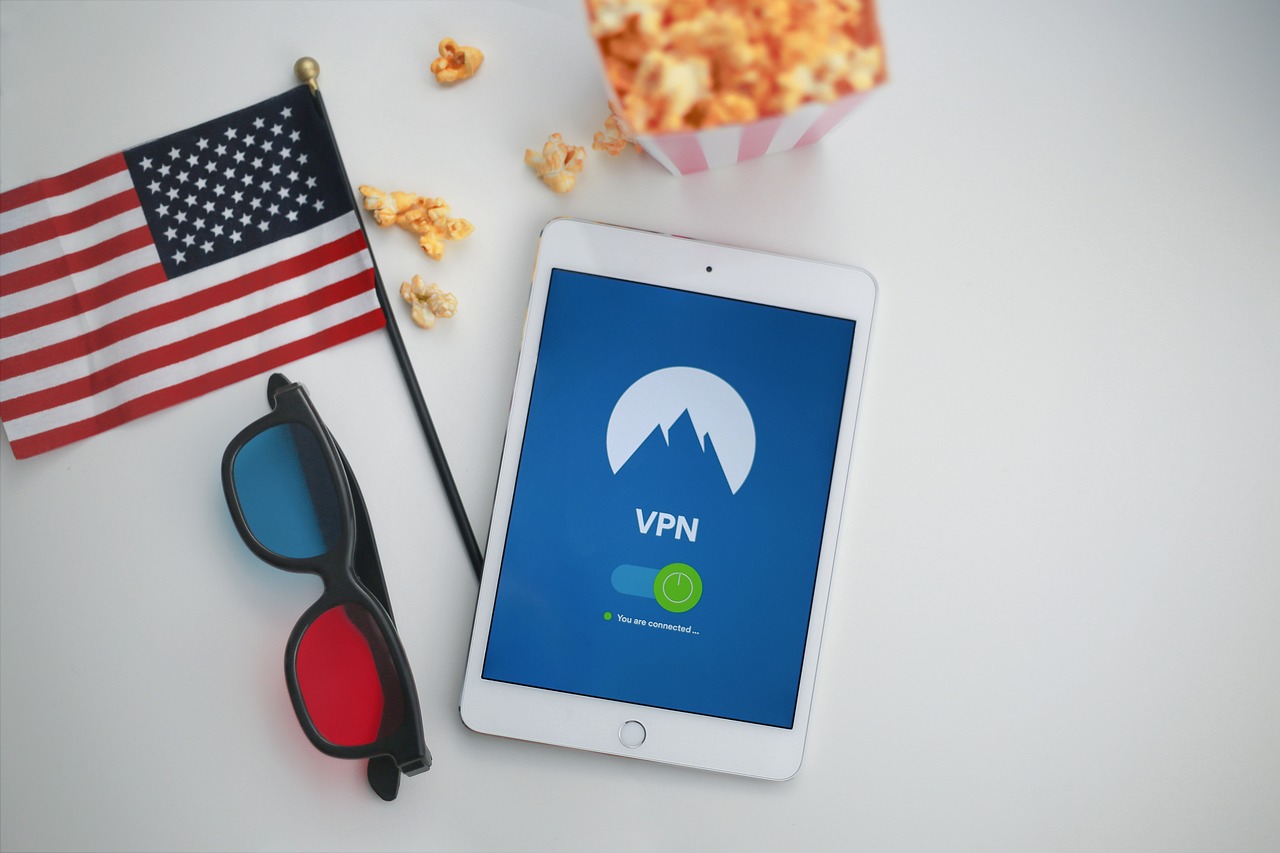
The Basics of VPN Technology
Understanding how VPNs (Virtual Private Networks) work is crucial to grasping their role in online anonymity. At its core, a VPN creates a secure and encrypted connection between your device and the internet. Think of it as a private tunnel that shields your online activities from prying eyes. When you connect to the internet through a VPN, your data is routed through a server operated by the VPN provider, which masks your IP address and makes it appear as if you are browsing from a different location. This not only helps in maintaining your privacy but also allows you to access content that may be restricted in your region.
The technology behind VPNs involves several key components that work together to ensure a secure browsing experience. First, there is the encryption process, which scrambles your data into a format that can only be read by someone who has the decryption key. This is essential for protecting sensitive information, especially when using public Wi-Fi networks that are notoriously insecure.
Next, we have the VPN protocol, which defines how data is transmitted over the VPN. Different protocols offer varying levels of security, speed, and compatibility. For example, some protocols prioritize speed, making them ideal for streaming, while others focus on security, providing a more robust shield against potential threats.
Additionally, VPNs can be categorized based on their deployment models. There are remote access VPNs, which allow individual users to connect to a private network from a remote location, and site-to-site VPNs, which connect entire networks to each other. This flexibility makes VPNs a popular choice for both personal and business use.
In a world where online surveillance and data breaches are increasingly common, understanding the basics of VPN technology is not just beneficial but essential. With the right VPN, you can enhance your online security and privacy, but it’s important to choose a reputable provider that prioritizes user anonymity and data protection.
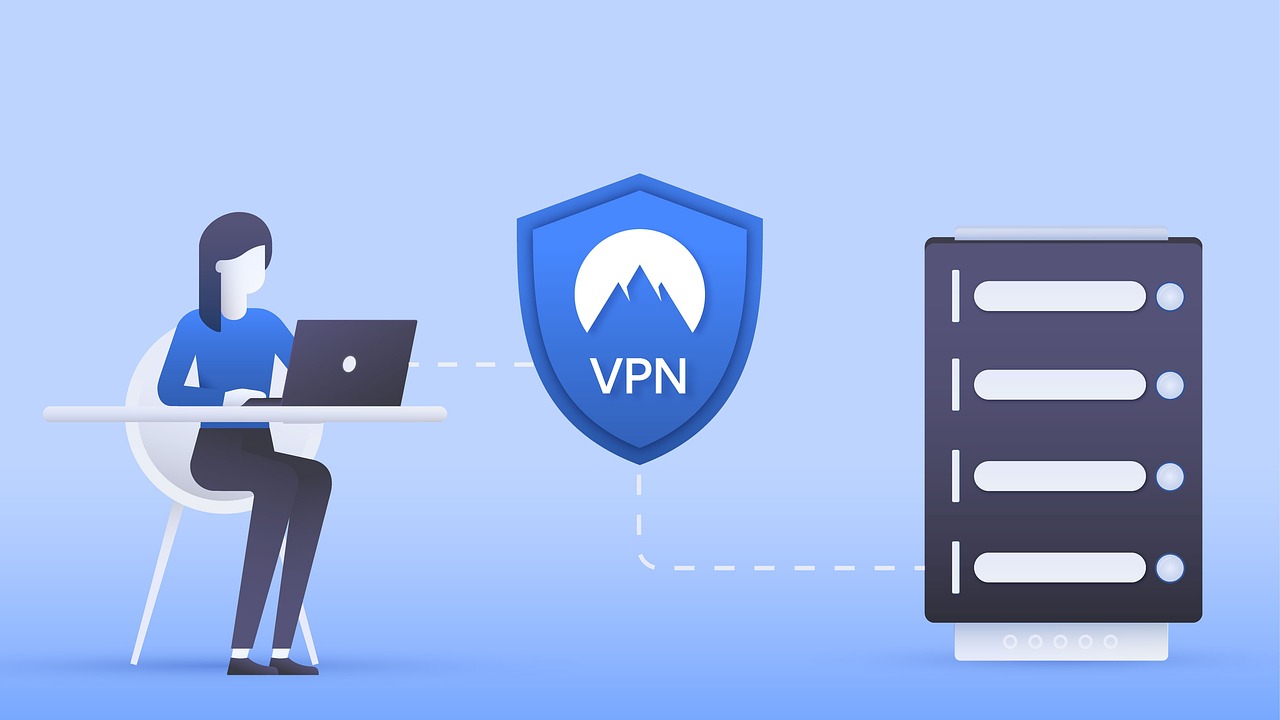
Benefits of Using a VPN
When it comes to navigating the vast ocean of the internet, using a VPN (Virtual Private Network) can feel like having a sturdy boat that shields you from the turbulent waves of online threats. VPNs offer a multitude of advantages that enhance your online experience, making them an essential tool for anyone seeking to protect their digital footprint. But what exactly are these benefits? Let’s dive in!
First and foremost, one of the most significant advantages of using a VPN is the enhanced privacy it provides. When you connect to a VPN, your internet traffic is routed through a secure server, which masks your IP address. This means that your online activities become much harder to trace back to you. Imagine walking through a crowded market with a mask on; you can browse freely without worrying about being recognized. This is akin to how a VPN operates, allowing you to surf the web without leaving a trail of breadcrumbs.
Another critical benefit is security. In an age where cyber threats are rampant, a VPN acts as a robust shield against hackers and malicious entities. By encrypting your data, VPNs ensure that even if someone intercepts your internet connection, they will only see meaningless gibberish. It's like sending a locked box instead of an open letter; only the intended recipient can unlock and read the contents. This encryption is especially vital when using public Wi-Fi networks, which are notoriously insecure.
Now, let’s talk about encryption in more detail. VPNs employ various encryption protocols to secure your data. This means that your sensitive information—like passwords and credit card numbers—are transformed into unreadable code before being transmitted over the internet. The most common protocols include:
| Protocol | Security Level | Speed |
|---|---|---|
| OpenVPN | High | Moderate |
| IKEv2/IPsec | High | Fast |
| L2TP/IPsec | Moderate | Slow |
As you can see, each protocol has its strengths and weaknesses. Choosing the right one can significantly impact your online experience. For instance, if speed is your priority, IKEv2/IPsec might be your best bet, while OpenVPN provides a balance between security and speed.
However, it’s important to note that while VPNs enhance your security, they can also affect your internet speed. This is because your data has to travel further to reach the VPN server, which can introduce latency. Factors such as the distance to the server and the server load can also play a role. Think of it like taking a detour on a road trip; sometimes, it may take longer to reach your destination, but the scenic route can offer a better view.
Moreover, VPNs can help you bypass geographic restrictions. Many streaming services limit their content based on your location. By connecting to a server in a different country, you can access shows and movies that might not be available in your region. It’s like having a universal key that unlocks doors to new entertainment options!
In summary, the benefits of using a VPN are multifaceted. From enhanced privacy and security to the ability to bypass geo-restrictions, a VPN can significantly improve your online experience. However, it’s essential to choose a reputable service to ensure you’re getting the best protection possible. After all, in the digital world, knowledge is power, and understanding how to wield that power can make all the difference.
- Can a VPN completely hide my online activities? While a VPN significantly enhances your privacy, it cannot guarantee complete anonymity. Other factors, such as browser settings and online behavior, also play a role.
- Do I need a VPN for streaming? If you want to access content that is restricted in your country, a VPN can help you bypass these restrictions.
- Will using a VPN slow down my internet speed? Yes, using a VPN may slow down your internet speed due to the additional distance your data has to travel. However, this can vary based on the VPN provider and server location.
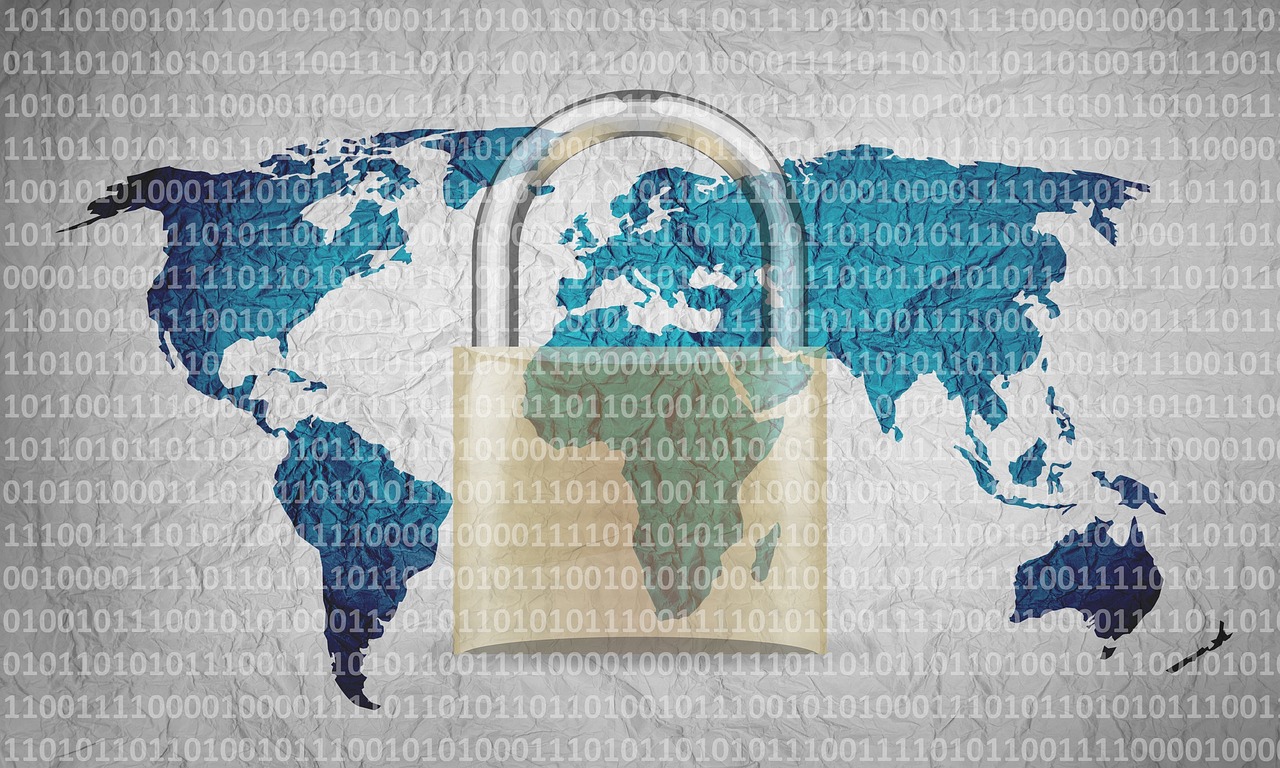
Encryption and Data Security
When it comes to online privacy, encryption is the superhero that swoops in to save the day. Imagine you’re sending a postcard with your personal secrets written on it; anyone can read it as it travels through the postal system. Now, picture instead that you’re sending a locked box, and only the person you intend to receive it has the key. That’s the essence of encryption! VPNs use various encryption methods to ensure that your data remains confidential and inaccessible to prying eyes.
At its core, encryption transforms your data into a coded format that can only be deciphered by someone who has the right decryption key. This means that even if hackers intercept your data while it’s in transit, all they’ll see is a jumbled mess of characters. This is crucial when you’re connected to public Wi-Fi networks, which are notoriously unsafe. Using a VPN encrypts your internet traffic, making it nearly impossible for anyone to snoop on your online activities.
But not all encryption methods are created equal. Different VPNs utilize various encryption protocols, each with its own strengths and weaknesses. Here’s a quick breakdown of some common protocols:
| Encryption Protocol | Strength | Speed | Use Case |
|---|---|---|---|
| OpenVPN | Very Strong | Moderate | General Use |
| IKEv2/IPsec | Strong | Fast | Mobile Devices |
| L2TP/IPsec | Moderate | Slow | Basic Security |
| PPTP | Weak | Fast | Streaming |
As the table shows, choosing the right protocol can significantly impact both the security and speed of your VPN connection. For instance, if you’re primarily concerned about security while handling sensitive information, OpenVPN is often recommended due to its robust encryption capabilities. However, if you’re on the go and need a quick connection, IKEv2/IPsec might be the better choice.
But wait, there’s more! The encryption process does come with its own set of challenges. While it effectively secures your data, it can also slow down your internet speed. This happens because your data has to be encrypted and decrypted at both ends of the connection. Factors like server distance, your internet speed, and the VPN protocol in use can all affect how quickly you can browse the web while connected to a VPN. So, while you’re enjoying the peace of mind that comes with encryption, you might find yourself waiting a bit longer for that cat video to load!
In summary, encryption is a vital component of VPN technology, providing a necessary shield against online threats. It’s essential to choose a VPN that employs strong encryption protocols to ensure your data remains secure. In a world where cyber threats are ever-evolving, being proactive about your online security is not just wise; it’s essential.
- What is a VPN? A VPN, or Virtual Private Network, creates a secure connection between your device and the internet, protecting your data from unauthorized access.
- Can a VPN guarantee my anonymity? While a VPN enhances your privacy, it cannot guarantee 100% anonymity due to various factors, including logging policies and internet service provider monitoring.
- Is all VPN encryption the same? No, different VPNs use various encryption protocols, each with its own level of security and speed. It's important to choose a VPN that uses strong encryption methods.
- Will using a VPN slow down my internet speed? Yes, using a VPN can potentially slow down your internet speed due to the encryption process and server distance, but the level of impact varies by provider and protocol.
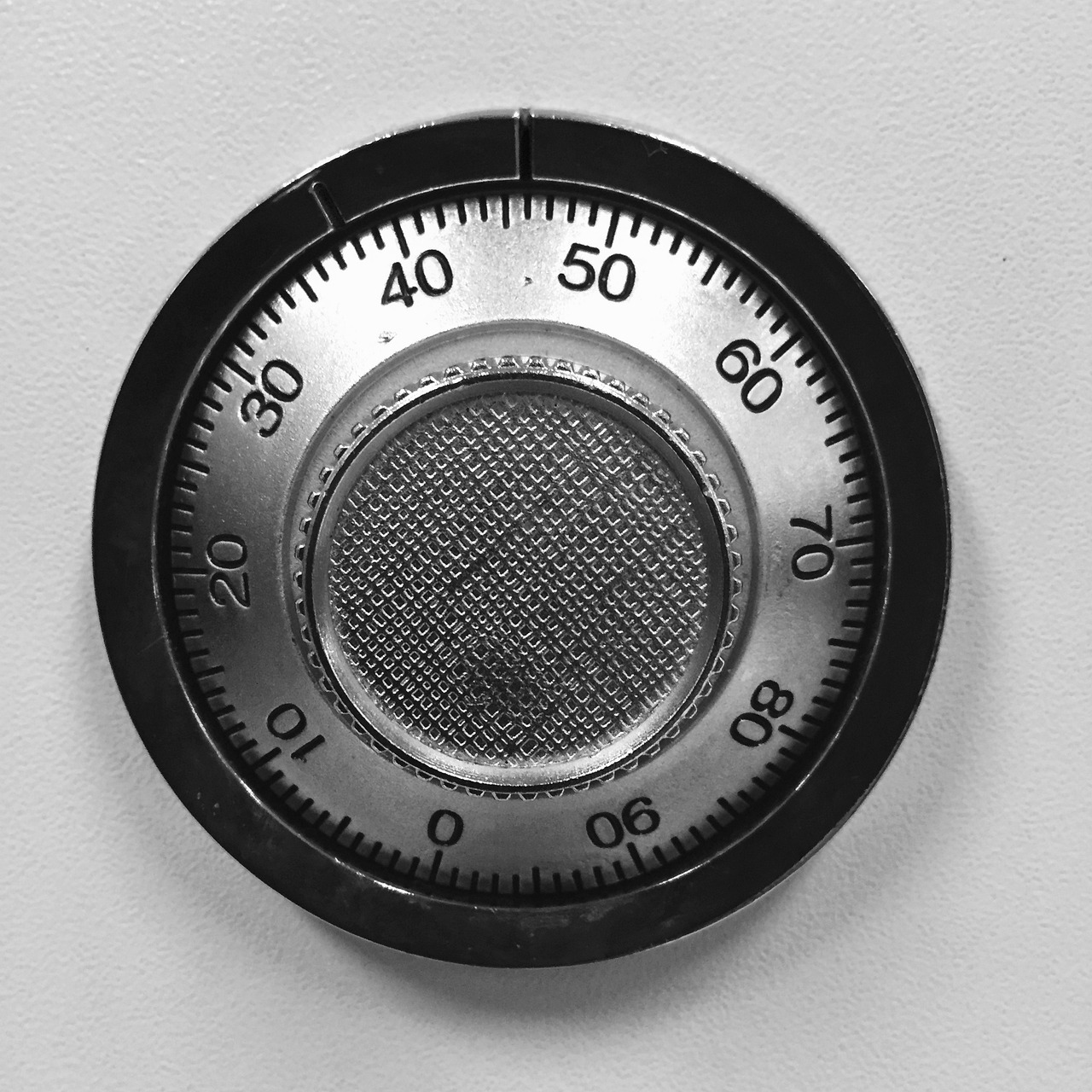
Types of Encryption Protocols
When it comes to VPNs, the backbone of their security features lies in the encryption protocols they employ. These protocols are like the different locks you can use on your front door; some are more secure than others, and choosing the right one can mean the difference between safety and vulnerability. Understanding these protocols is crucial for anyone looking to safeguard their online presence. Let's dive into the most common types of encryption protocols used by VPNs and see how they stack up against each other.
Firstly, we have OpenVPN, which is widely regarded as one of the most secure and flexible protocols available. It uses the OpenSSL library and supports a variety of encryption algorithms, making it a favorite among tech-savvy users. OpenVPN can operate over both UDP and TCP, allowing users to choose between speed and reliability. Its flexibility also means it can be customized to suit different needs, making it a versatile choice for many.
Next up is IPSec/IKEv2. This protocol is known for its speed and stability, especially on mobile devices. The combination of IPSec for encryption and IKEv2 for key exchange offers a robust solution that can quickly reconnect after a temporary loss of connection. This makes it perfect for users who are constantly on the go and need a reliable connection that won’t drop unexpectedly.
Then we have L2TP/IPSec, which combines the Layer 2 Tunneling Protocol with IPSec for encryption. While it provides a decent level of security, it can be slower than OpenVPN and IKEv2 due to its double encapsulation of data. Think of it as adding an extra layer of wrapping to a gift; while it might look nice, it can slow down the delivery process.
Another protocol worth mentioning is PPTP, which is one of the oldest protocols still in use today. While it’s fast and easy to set up, its security is often questioned. PPTP uses MPPE for encryption, which is considered less secure compared to the other protocols mentioned. It's like using a flimsy lock on your door; it might keep out some intruders, but a determined hacker can easily bypass it.
For those looking for the highest level of security, WireGuard is gaining popularity. It’s a newer protocol that aims to be faster and simpler than its predecessors. WireGuard uses state-of-the-art cryptography and is designed to be lightweight, making it an excellent choice for users who want both speed and security. Think of it as the sleek sports car of encryption protocols—fast, efficient, and built for performance.
| Protocol | Security Level | Speed | Best For |
|---|---|---|---|
| OpenVPN | High | Moderate | General Use |
| IPSec/IKEv2 | High | High | Mobile Devices |
| L2TP/IPSec | Moderate | Low | Basic Security |
| PPTP | Low | High | Legacy Support |
| WireGuard | High | Very High | Performance Focused |
In summary, the choice of encryption protocol can significantly affect your online security and performance. It's essential to consider what you value more—speed or security—when selecting a VPN service. Always opt for a protocol that aligns with your specific needs and remember that while no protocol can guarantee absolute anonymity, choosing the right one can enhance your privacy significantly.
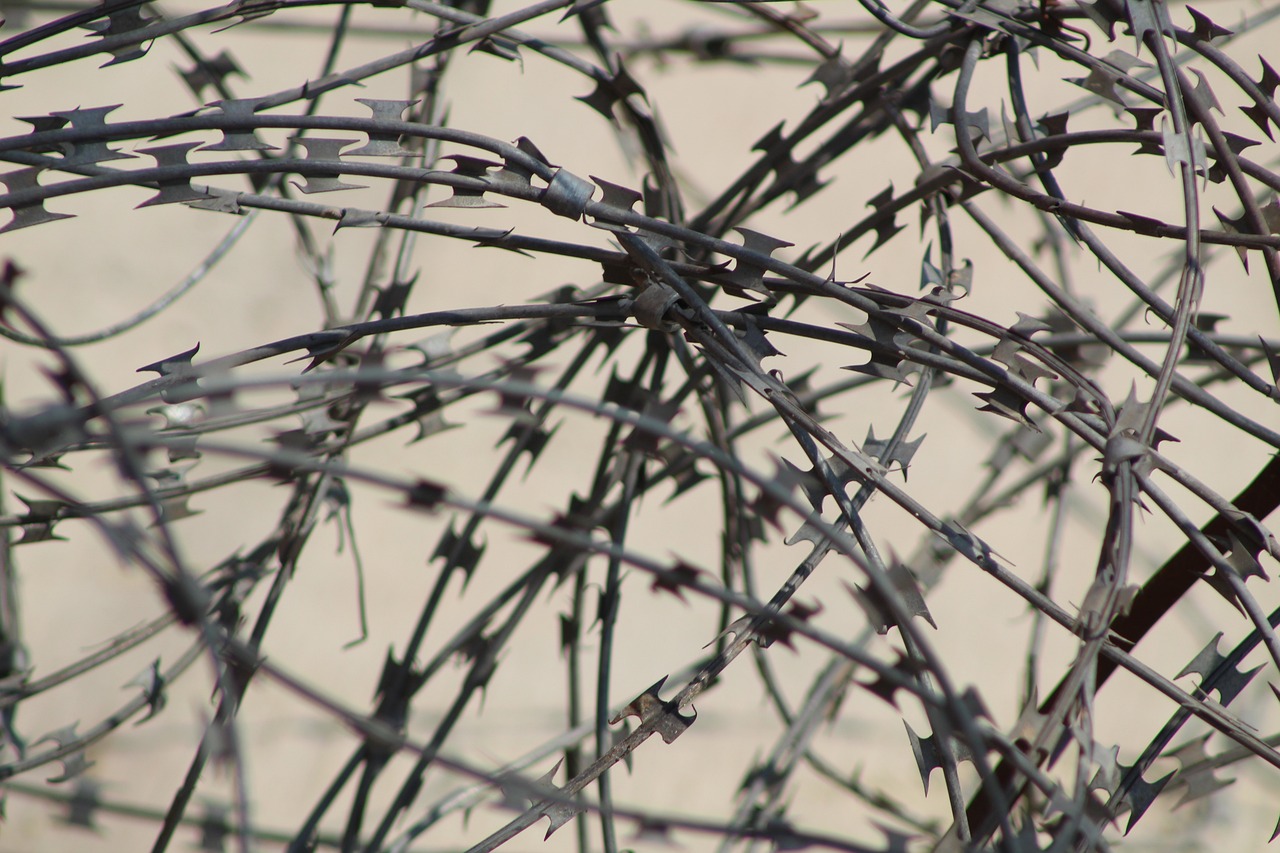
Impact on Internet Speed
When you connect to a VPN, you might expect a seamless browsing experience, but that’s not always the case. The reality is, while VPNs offer a plethora of benefits, they can also introduce some hiccups in your internet speed. So, what’s going on behind the scenes? When you use a VPN, your data is encrypted and routed through a secure server before it reaches its destination. This extra step, while crucial for security, can lead to increased latency and slower connection speeds. Think of it like taking a detour on a road trip; you might be safer, but you’ll also take longer to reach your destination.
Several factors can influence how much a VPN affects your internet speed:
- Server Location: The further away the VPN server is from your physical location, the longer it takes for data to travel back and forth. If you're in New York and connecting to a server in Australia, you're likely to experience noticeable delays.
- Server Load: If a VPN server is overloaded with users, it can slow down your connection. Imagine a busy highway during rush hour; the more cars on the road, the slower everyone moves.
- Encryption Protocol: Different VPNs use various encryption methods, some of which require more processing power than others. More robust encryption means better security, but it can also mean slower speeds.
- Your Internet Connection: If you start with a slow internet connection, adding a VPN can exacerbate the issue. It’s like trying to fill a bucket with a tiny hole; it’s going to take a while, no matter how much you try to pour in.
Interestingly, not all VPNs are created equal when it comes to speed. Some providers have optimized their services to minimize speed loss, often using advanced technologies like split tunneling, which allows you to choose which traffic goes through the VPN and which doesn’t. This can be particularly useful for activities like streaming or gaming, where speed is crucial.
To give you a clearer picture, here’s a simple comparison of speed impacts based on different VPN types:
| VPN Type | Typical Speed Impact | Best Use Case |
|---|---|---|
| Free VPN | High | Light browsing |
| Paid VPN | Moderate | Streaming, gaming |
| Premium VPN with Optimized Servers | Low | Heavy usage, business |
In summary, while using a VPN can indeed impact your internet speed, the extent of that impact depends on various factors, including server location, load, encryption protocols, and your existing internet speed. It’s a balancing act between security and performance, and finding the right VPN can make all the difference.
- Do all VPNs slow down my internet? Not all VPNs will significantly slow down your internet. Premium VPNs often use optimized servers to minimize speed loss.
- Can I use a VPN for gaming? Yes, but be mindful of the potential for increased latency. Choose a VPN with fast servers close to your gaming server.
- What is split tunneling? Split tunneling allows you to choose which traffic goes through the VPN and which does not, helping to maintain speed for certain activities.
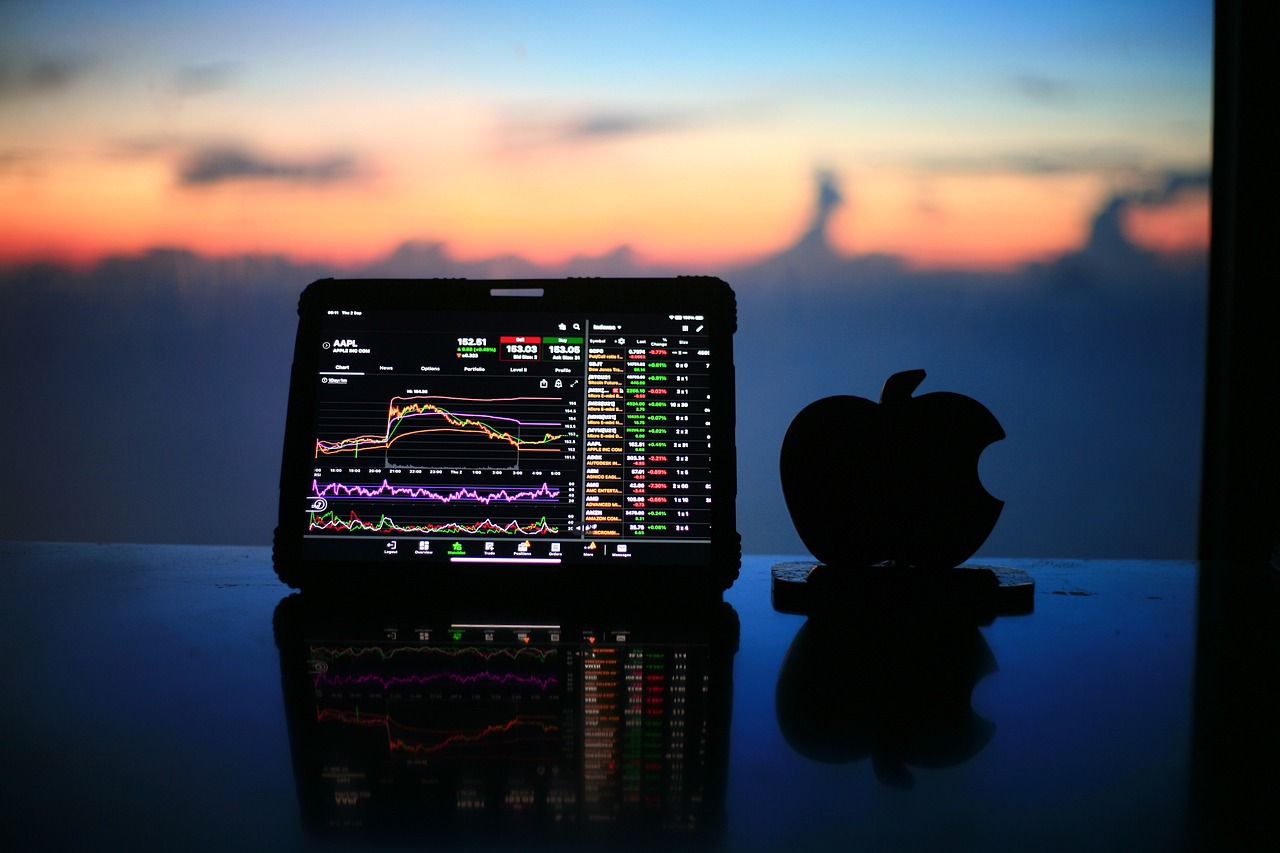
Limitations of VPNs
While VPNs are often hailed as a shield against prying eyes, it's essential to understand that they are not a panacea for online anonymity. One of the significant limitations of VPNs is that they can give users a false sense of security. Many individuals believe that simply connecting to a VPN will make them completely invisible online, but this isn't entirely accurate. VPNs can enhance your privacy, but they cannot guarantee 100% anonymity. For example, if you're logged into social media or other accounts, your activity can still be tracked by those platforms, regardless of your VPN connection.
Another limitation lies in the trustworthiness of the VPN provider. Not all VPNs are created equal; some may log your data, sell your information, or even have weak security protocols. It's crucial to choose a reputable VPN service that prioritizes user privacy. In fact, a 2021 study revealed that nearly 25% of free VPNs had serious privacy vulnerabilities. This statistic is shocking, but it underscores the importance of doing thorough research before selecting a VPN service.
Additionally, VPNs can be subject to legal and regulatory challenges. In some countries, the use of VPNs is restricted or outright banned. Users in these regions might face penalties for using VPNs, which can deter individuals from seeking the anonymity they desire. Moreover, even in countries where VPNs are legal, law enforcement agencies may have the ability to monitor VPN traffic, especially if the provider is required to comply with local laws.
Performance is another area where VPNs can fall short. Users often experience slower internet speeds when connected to a VPN due to the encryption process and the increased distance to the VPN server. This can be particularly frustrating for those who engage in bandwidth-intensive activities like streaming or online gaming. The degree of speed reduction varies based on several factors, including the chosen VPN protocol, server load, and your original internet speed.
Lastly, it's essential to recognize that VPNs cannot protect against all online threats. While they can encrypt your data and mask your IP address, they do not provide complete protection against malware, phishing attacks, or other cybersecurity threats. Users still need to employ additional security measures, such as antivirus software and safe browsing practices, to ensure comprehensive online safety.
In summary, while VPNs offer valuable benefits, they come with limitations that users must consider. Understanding these limitations can help you make informed decisions about your online privacy and security. Always remember that a VPN is just one tool in your digital arsenal, and it should be used in conjunction with other security practices to achieve the best results.
- Can a VPN hide my browsing history?
A VPN can hide your browsing history from your Internet Service Provider (ISP) but not from the websites you visit or any accounts you are logged into. - Are free VPNs safe to use?
Many free VPNs have been found to have privacy vulnerabilities. It's often safer to invest in a reputable paid VPN service. - Will a VPN protect me from hackers?
A VPN can provide an additional layer of security, but it does not replace the need for antivirus software and safe browsing habits. - Can I use a VPN on multiple devices?
Most VPN services allow you to connect multiple devices simultaneously, but it's essential to check the provider's policy.

Legal and Ethical Considerations
When it comes to using a VPN, the conversation quickly shifts from technical aspects to legal and ethical considerations. After all, while a VPN can provide a cloak of anonymity, it doesn't grant users a free pass to engage in illegal activities. Understanding the laws and ethical implications surrounding VPN usage is crucial for any internet user. Many people wonder, "Can I really do whatever I want online if I'm using a VPN?" The answer is more complicated than it seems.
First off, let's talk about legal implications. Different countries have different laws regarding internet usage and privacy. In some regions, using a VPN is perfectly legal and can even be encouraged as a means of protecting personal privacy. However, in others, VPN usage is restricted or outright illegal. For example, countries like China and Russia impose strict regulations on VPN services, often requiring them to be government-approved. This creates a complicated landscape for users who may think they are shielded from scrutiny. So, before you connect to a VPN, it's essential to know the legal framework of your jurisdiction.
Moreover, the ethical considerations surrounding VPNs are equally important. While the technology can be used for legitimate purposes—like protecting personal data from hackers or accessing geo-restricted content—it can also be misused. For instance, some individuals use VPNs to engage in illegal activities such as piracy or accessing dark web sites. This raises a significant ethical question: just because you can do something anonymously, does that mean you should? The answer to that question often varies based on personal values and societal norms.
Many users might not realize that their VPN provider can play a crucial role in their legal and ethical standing. Some VPN services maintain strict no-logs policies, meaning they don't keep records of user activity. This is generally seen as a positive feature for privacy-conscious individuals. However, other providers may log user data, which could be handed over to authorities if requested. It's vital to research and choose a VPN service that aligns with your values regarding privacy and ethical usage.
Another aspect to consider is data retention laws. Countries have varying regulations about how long companies must keep user data. For example, in the European Union, the General Data Protection Regulation (GDPR) places stringent rules on data collection and retention, while in the United States, laws can be more lenient. This discrepancy can impact how effectively a VPN can protect your data. If you’re in a country with lax data laws, your VPN provider may be compelled to retain data longer than you'd like, potentially compromising your anonymity.
In conclusion, while VPNs offer a layer of security and privacy, users must navigate a complex web of legal and ethical considerations. It's not just about connecting to a server and thinking you're invisible; it's about understanding the implications of your actions online. As you ponder whether to use a VPN, ask yourself: are you using it responsibly? Are you aware of the laws in your country? Are you choosing a reputable provider? These questions are vital for ensuring that your online activities remain both legal and ethical.
- Are VPNs legal to use? - Yes, in many countries, but always check local laws.
- Can VPNs be used for illegal activities? - While they can provide anonymity, engaging in illegal activities is still punishable by law.
- What should I look for in a VPN provider? - Look for a no-logs policy, strong encryption, and a good reputation.
- How do data retention laws affect my VPN? - Data retention laws vary by country and can impact how your data is handled by the VPN provider.
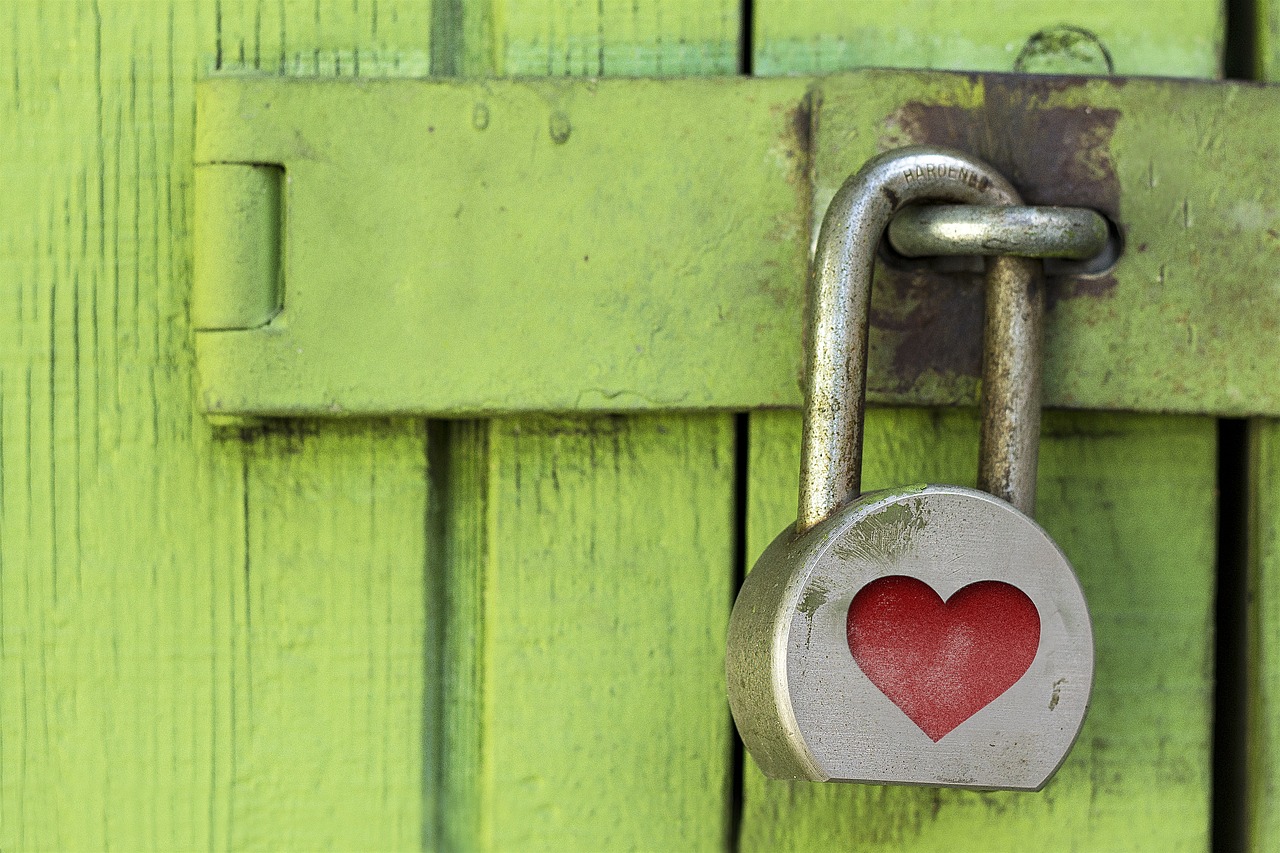
VPNs and Data Retention Laws
When it comes to online privacy, understanding data retention laws is essential for anyone considering the use of a VPN. These laws vary significantly from one country to another, influencing how VPN services operate and the level of anonymity they can provide. For instance, some countries require internet service providers (ISPs) and VPN companies to retain user data for a certain period, which can include browsing history, connection logs, and even personal information. This means that even if you're using a VPN, your data might still be accessible to authorities if the VPN provider is mandated to keep records.
In countries like the United States and United Kingdom, data retention laws can be quite stringent. VPN providers operating in these jurisdictions may have to comply with local regulations that require them to log user activity. This can undermine the very reason users turn to VPNs in the first place—privacy and anonymity. On the other hand, countries like Switzerland and Panama have more favorable laws for privacy, making them attractive locations for VPN providers who want to offer users a higher level of anonymity.
It's important to note that not all VPNs are created equal. Some providers boast a strict no-logs policy, meaning they do not keep any records of user activity. However, the credibility of these claims often depends on the jurisdiction in which the VPN operates. For example, a VPN based in a country with strong privacy laws may be more trustworthy than one located in a country with mandatory data retention laws. Users should thoroughly research their chosen VPN provider's privacy policy and the legal framework of its operating country to assess the potential risks to their data.
Here's a quick comparison of how data retention laws differ across various countries:
| Country | Data Retention Requirement | VPN Privacy |
|---|---|---|
| United States | ISPs may retain data for 18 months | Moderate |
| United Kingdom | Mandatory retention for 12 months | Low |
| Switzerland | No mandatory data retention | High |
| Panama | No data retention laws | High |
In conclusion, while VPNs can significantly enhance your online privacy, they are not a foolproof solution against data retention laws. Users must remain vigilant and informed about the laws governing their VPN provider. Always choose a VPN that aligns with your privacy needs and offers transparent policies regarding data handling. By understanding these legal nuances, you can make more informed decisions about your online privacy and how to protect your digital footprint.
- What is a VPN? A VPN, or Virtual Private Network, is a service that encrypts your internet connection and hides your IP address, enhancing your online privacy.
- Do VPNs guarantee complete anonymity? No, while VPNs improve privacy, they cannot guarantee 100% anonymity due to factors like data retention laws and the provider's logging policies.
- Can my ISP see my online activity if I use a VPN? Generally, no. A VPN encrypts your data, making it difficult for ISPs to monitor your online activities. However, your VPN provider may have access to this information.
- Are free VPNs safe to use? Free VPNs often have limitations and may compromise your privacy by logging your data or displaying ads. It's usually safer to opt for a reputable paid VPN service.
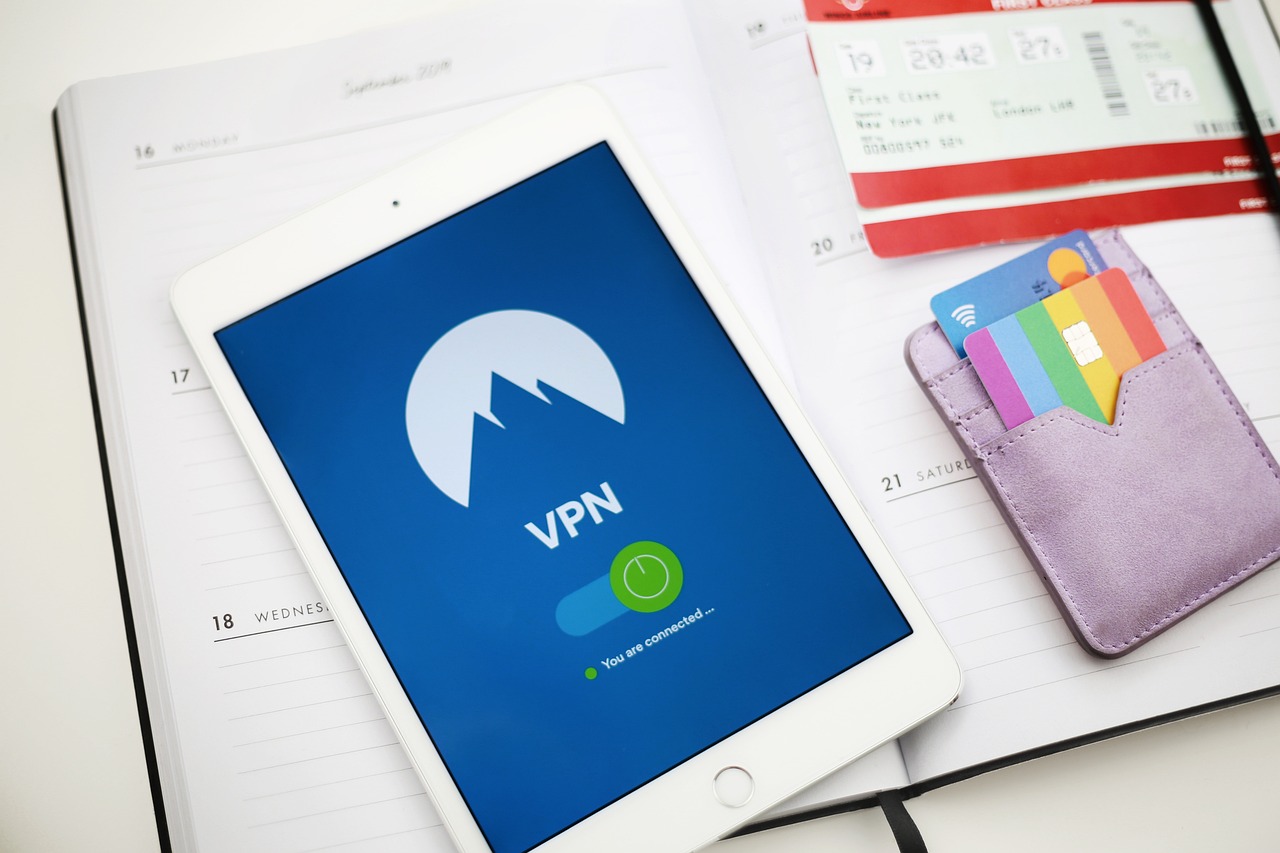
Ethical Use of VPNs
When it comes to the , the conversation can get a bit murky. On one hand, VPNs are heralded as essential tools for safeguarding personal privacy and enhancing security in an increasingly digital world. On the other hand, their capabilities can be misused for activities that skirt the edges of legality and ethics. So, where do we draw the line? Are VPNs just tools for the tech-savvy to outsmart geo-restrictions, or do they serve a more noble purpose in protecting our online identities?
To understand the ethical landscape of VPN usage, we need to consider the motivations behind why people choose to use them. For many, VPNs are a means of achieving freedom of expression in regions where internet access is heavily monitored or restricted. They provide a safe haven for whistleblowers, activists, and journalists who require anonymity to share vital information without fear of persecution. In these cases, using a VPN is not only ethical but essential.
However, the same technology can be employed for less noble purposes. For example, some users may turn to VPNs to engage in illegal activities such as piracy or accessing content that is prohibited in their country. This raises significant ethical questions: does the end justify the means? Just because you can hide your identity doesn’t mean you should. It's crucial for VPN users to reflect on their intentions and the potential consequences of their actions.
Moreover, the ethical implications of using a VPN also depend on the jurisdiction in which the user resides. Different countries have varying laws regarding what is permissible online, and while a VPN might help users bypass local restrictions, it can also put them at risk of legal repercussions. Therefore, understanding the legal framework surrounding VPN usage is key to making informed and ethical choices.
In essence, the ethical use of VPNs boils down to a few core principles:
- Intention: Why are you using a VPN? Is it for protection, or are you trying to exploit loopholes?
- Legality: Are you aware of the laws regarding VPN usage in your country? Ignorance is not an excuse.
- Responsibility: Are you prepared to accept the consequences of your online actions, regardless of whether you are using a VPN?
Ultimately, while VPNs can be powerful tools for enhancing privacy and security, they come with a responsibility. Users must navigate the ethical landscape with care, ensuring that their use of VPN technology aligns with both legal standards and moral considerations. As the digital world continues to evolve, so too will the discussions around the ethical implications of VPN usage.
1. Can I use a VPN to access content illegally?
While technically possible, using a VPN to access illegal content is not advisable and can lead to legal consequences.
2. Are all VPNs ethical?
No, the ethics of a VPN depend on how it is used and the policies of the VPN provider. Always research the provider's practices.
3. Is it ethical to bypass geo-restrictions?
This is subjective and depends on the laws of your country and the intent behind bypassing those restrictions.
4. Can VPNs protect me from all online threats?
No, while VPNs enhance privacy, they do not protect against all forms of cyber threats. It's essential to use additional security measures.
Frequently Asked Questions
- Can a VPN guarantee 100% anonymity?
While VPNs significantly enhance your online privacy, they cannot guarantee 100% anonymity. Factors like your internet activity, the VPN provider's policies, and local laws can influence your level of anonymity. It's essential to choose a reputable VPN that prioritizes user privacy.
- How does a VPN work?
A VPN, or Virtual Private Network, creates a secure tunnel between your device and the internet. It encrypts your data, making it unreadable to anyone who might intercept it. This process helps protect your information from hackers and snoopers, especially on public Wi-Fi networks.
- Will using a VPN slow down my internet speed?
Using a VPN can sometimes slow down your internet speed due to the encryption process and the distance to the VPN server. However, many high-quality VPNs optimize their servers to minimize speed loss, so you may not notice a significant difference.
- Are all VPNs the same?
No, not all VPNs are created equal. They vary in terms of features, security protocols, speed, and privacy policies. It's crucial to research and choose a VPN that meets your specific needs and has a solid reputation for protecting user data.
- Can I use a VPN for streaming content?
Yes, many people use VPNs to access geo-restricted content on streaming platforms. By connecting to a VPN server in a different location, you can bypass these restrictions and enjoy your favorite shows and movies from anywhere in the world.
- What are the legal implications of using a VPN?
The legality of using a VPN varies by country. In most places, it's legal to use a VPN for privacy and security. However, some countries have strict regulations regarding VPN use, so it's essential to be aware of local laws before using one.
- Do VPNs store my data?
It depends on the VPN provider. Some VPNs have a strict no-logs policy, meaning they don't store any of your data. Others may keep certain logs for operational purposes. Always check the privacy policy of your chosen VPN to understand how they handle your data.
- Can I use a free VPN?
While free VPNs are available, they often come with limitations such as slower speeds, data caps, and potentially questionable privacy practices. It's generally recommended to invest in a reputable paid VPN for better security and performance.

